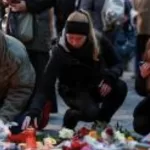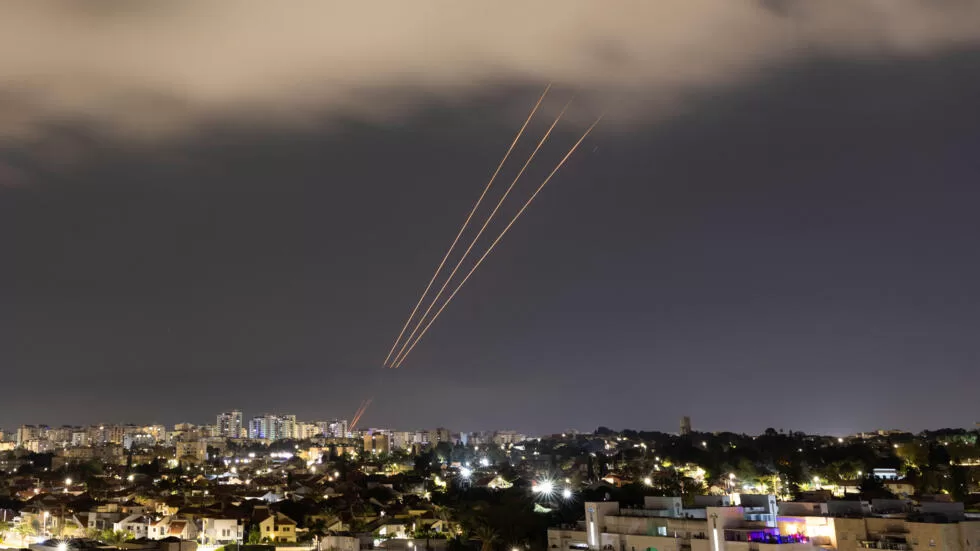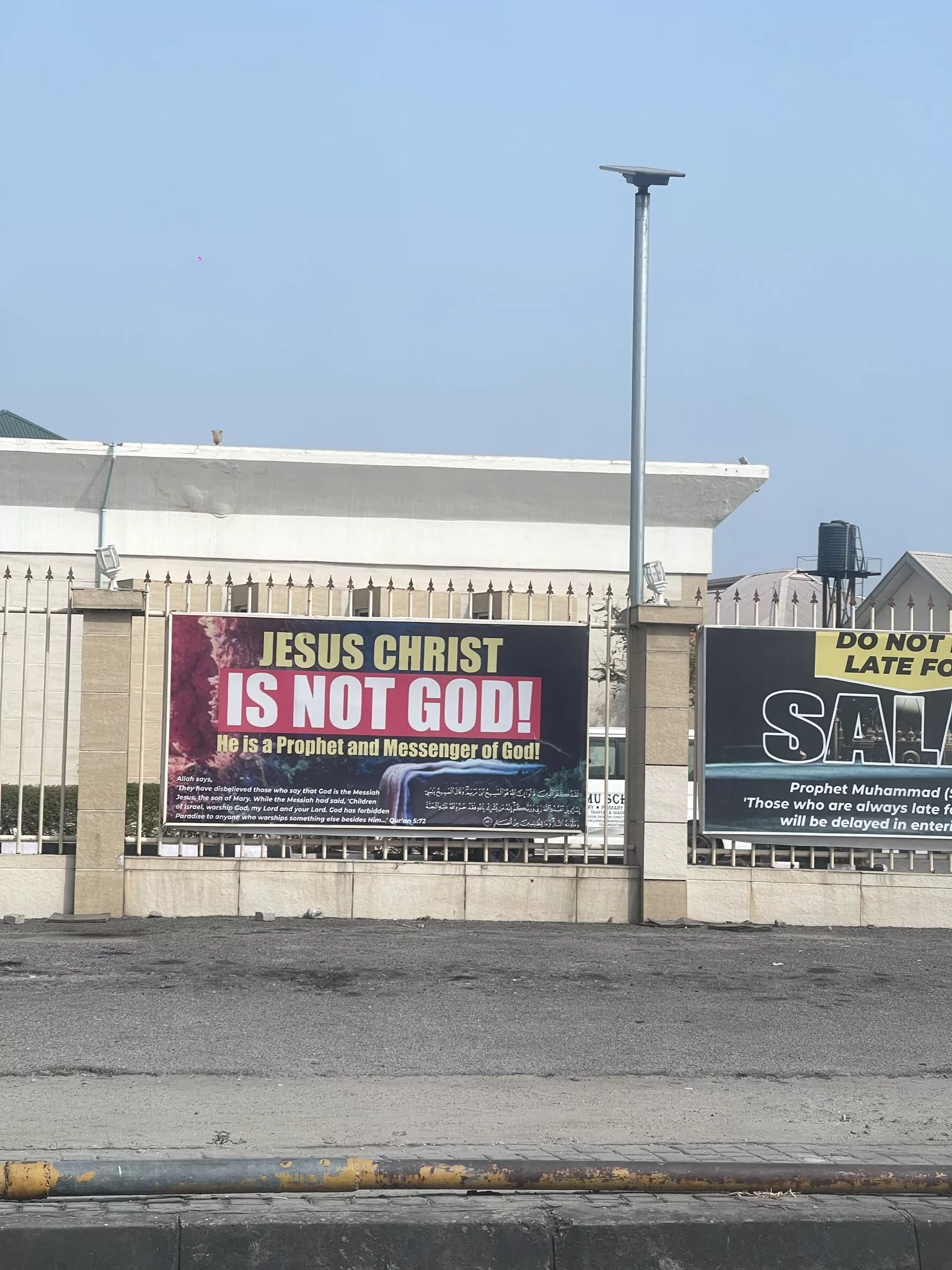Israel launched a series of airstrikes against Iran early on Saturday, claiming the assaults were directed at military targets in revenge for the Islamic Republic’s volley of ballistic missiles against Israel earlier this month.
Although there was no immediate word on damage or injuries, explosions could be heard in Tehran, the capital of Iran.
At a time of escalating violence throughout the Middle East, where Iranian-backed militant groups, such as Hamas in Gaza and Hezbollah in Lebanon, are already at war with the Hebrew nation, the attack runs the risk of bringing the archenemies closer to full-scale conflict.
The Hebrew nation claimed to have carried out “precise strikes on military targets” on Saturday, but two Israeli officials stated the strikes were not directed at oil or nuclear installations. Since they were not authorised to speak to the media about the ongoing operation, the officials talked on condition of anonymity.
Defence Forces (IDF) spokesperson Rear Adm. Daniel Hagari said in a prerecorded video speech early Saturday that “the regime in Iran and its proxies in the region have been relentlessly attacking Hebrew nation since Oct. 7… including direct attacks from Iranian soil.”
“The State of Israel has the right and the obligation to respond, just like any other sovereign nation in the world.”
At first, IDF reaction to Iran’s Oct. 1 attack was thought to target oil stations and nuclear facilities. However, in mid-October, the Biden administration thought it had secured guarantees from Israel that it would not strike these targets, which would constitute a more serious escalation.
Iran’s official media said that explosions were audible in Tehran and claimed that some of the noises were from the city’s air defence systems.
Iranian official television, however, provided no further information beyond a brief mention and even, in what appeared to be an effort to minimise the attack, started airing what it described as live footage of individuals loading trucks at a Tehran vegetable market.
The first wave of assaults shook the surrounding neighbourhood, with at least seven explosions audible, a Tehran resident told The Associated Press (AP). For fear of retaliation, the resident spoke on condition of anonymity.
People in Tehran could see what looked like tracer fire light up the sky as explosions sounded. Additional video captured what looked like the launch of surface-to-air missiles
On Saturday, Iran closed its airspace, and according to AP’s analysis of flight-tracking data, commercial airlines largely departed the sky over Iran as well as over Iraq, Syria, and Lebanon.
President Joe Biden has been briefed and will continue to get updates, according to the White House.
Syria’s central and southern military installations were the target of missile fire, according to the state news agency SANA, which cited an unnamed military official.
It claimed that several of the missiles had been shot down by Syria’s air defences. Casualty information was not immediately available.
After two Iranian generals were killed in what seemed to be an IDF airstrike on an Iranian diplomatic facility in Syria last April, Iran launched a barrage of missiles and drones towards Israel.
Under pressure from Western nations to exercise restraint, Israel retaliated with a limited strike after the missiles and drones caused little damage.
However, Israel pledged a more forceful reaction following Iran’s missile launch in early October. Benjamin Netanyahu, the prime minister of Israel, declared right away that Iran had “made a big mistake.”
The United States, which has a sizable military presence in the Persian Gulf and has assisted Israel in defending itself against strikes by Iran and its allies, runs the possibility of becoming even more involved if Israel launches a strong attack on Iran.
On the evening of October 1, Iran fired at least 180 missiles into Israel, causing very minor damage and a few injuries while sending Israelis running into bomb shelters.
Iran claimed that the bombardment was punishment for attacks that killed Iranian military personnel, Hamas leaders, and Hezbollah commanders in previous months.
IDF had dealt Hezbollah a slew of severe blows before to Iran’s October attack. Hezbollah has been launching rockets into the Hebrew nation almost every day for more than a year, ever since the horrific Hamas attack on Israel that started the war in Gaza.
In September, two days of assaults reported to Israel resulted in the explosion of Hezbollah’s pagers and walkie-talkies, killing dozens and injuring thousands. The following week, Hassan Nasrallah, the long-time leader of Hezbollah, and several of his top commanders were murdered in a major Israeli attack outside of Beirut.
Last October 7, Hamas and other militants assaulted the Hebrew nation, killing 1,200 people, primarily civilians, and capturing some 250 hostages in Gaza.
Netanyahu has promised to continue Israel’s catastrophic air and military offensive against Hamas until all of the captives are released.
There are about 100 left, and about one-third are thought to be dead. According to local health experts, well than half of the 42,000 Palestinians killed in Gaza are women and children. They do not distinguish between civilians and combatants.
As US Secretary of State Antony Blinken was returning to the United States from a Middle East tour, where he and other US officials had cautioned Israel to respond in a way that would not worsen the regional conflict, Israel launched its assault on Iran on Saturday.
The Hebrew nation contacted the US before of the strikes, according to two US officials. The US was not involved in the operation, they added. The officials discussed an ongoing operation while speaking on condition of anonymity.
Since the Islamic Revolution of 1979, the Hebrew nation and Iran have been fierce enemies. Given its leaders’ demands for Israel’s destruction, their backing of terrorist anti-Israel organisations, and its nuclear program, Israel views Iran as its worst threat.
The shadow war between Iran and Israel has lasted for years. Leading Iranian nuclear scientists have been slain in what is believed to be an Israeli assassination campaign.
In enigmatic attacks attributed to the Hebrew nation, Iranian nuclear installations have been compromised or damaged.
In the meantime, Iran has been held accountable for a slew of recent attacks on Middle Eastern ships, which escalated into attacks on shipping via the Red Sea corridor by Yemen’s Houthi rebels.
Since the October 7 strike by Hamas, the shadow war has become more visible. After two Iranian generals were killed in what seemed to be an IDF airstrike on an Iranian diplomatic facility in Syria last April, Iran launched a barrage of missiles and drones towards Israel.
Under pressure from Western nations to exercise restraint, the Hebrew nation retaliated with a limited strike after the missiles and drones caused little damage.
However, the Hebrew nation pledged a more forceful reaction following Iran’s missile launch in early October.











